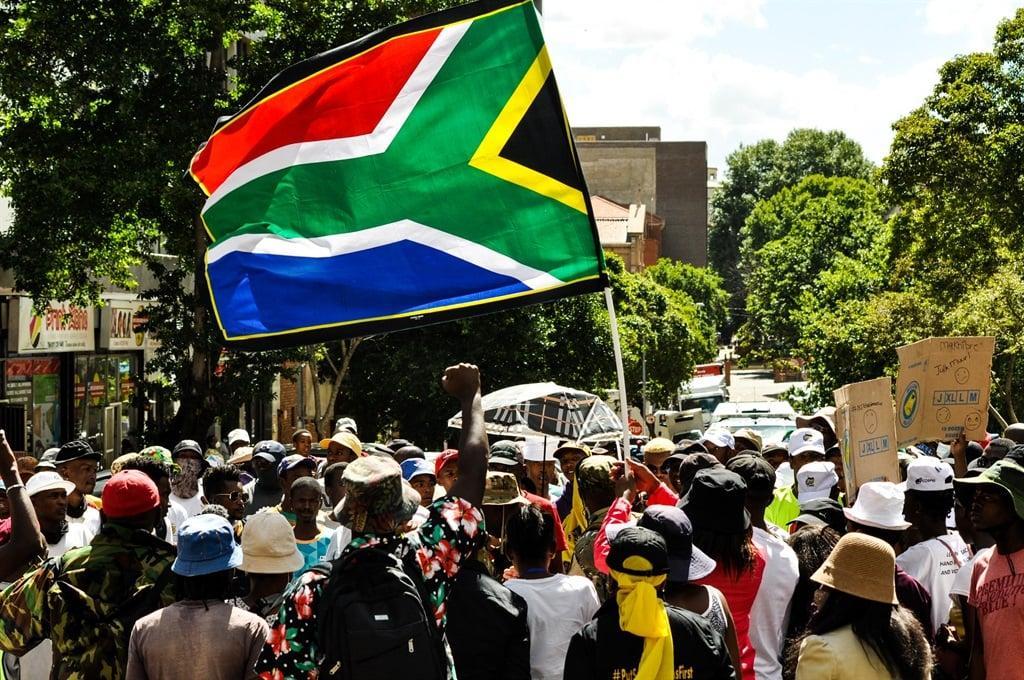Msingathi Sipuka
Africa-Press – South-Africa. As we stumble along our journey of nationhood, there have been critical developments that have happened across the continent that affect the very idea of the South African nation and its trajectory, writes Msingathi Sipuka.
In the early years of democratic South Africa, our public discourse was defined by the idea of nation-building. This essentially entailed picking up the ruins of apartheid, defined by all sorts of fragmentations, to reconstruct a South African identity that galvanised us towards a new and common national interest.
Of the many fragmentations that South Africa confronted at the time, race was the central of them all. Naturally, the nation-building project was centred on responding to this dominant tension in our society. Certainly, the country was fortunate to have Madiba’s leadership during this sensitive period.
Leading up to its 1997 National Conference, through its discussion document on the National Question, the ANC aptly summarised both the historical and contemporary question of nationhood in South Africa.
The country is essentially trying to resolve two contradictory consequences of its colonial-apartheid history. On the one hand, it is the 1910 Union of South Africa that brought together different communities into one nation-state, while at the same time, it is the same nation-state that kept the various communities apart, thus preventing the unity of these communities into one nation. The task at hand is to go beyond the legal instrument of the democratic state to forge a “nation” out of the fragmented communities, with shared national interests that revolve around responding to the objective conditions of the oppressed.
By all accounts, both the soft and hard elements of nation-building are far from our reach. The persistent inequalities, exclusion and poverty of the black majority and limited progress in transforming ownership patterns across the economy are central to our inability to deliver on the idea of a common nationhood. These objective failures are coupled with regular events that demonstrate the continued racial division of our society. It is interesting that the most prominent of these have occurred at our universities, actioned by young white students against vulnerable black workers or students, reflecting how racial discrimination runs across generations.
As we stumble along our journey of nationhood, there have been critical developments that have happened across the continent that affect the very idea of the South African nation and its trajectory.
Impact of migration
A critical one, by all accounts, is the political and economic situation in Zimbabwe that has led to a migration of between one to three million nationals into South Africa. Attendant to this is the political changes in South Africa that have effectively opened the country to the continent as a migration destination. This, of course, is complemented by its advanced economy relative to economies across the continent.
Notwithstanding that South Africa has a long history of inward migration, the post-1994 period has been more active with greater geographical diversification.
From a perspective of considering nationhood, these developments have significantly altered the starting point of the South African nation and the nation-building project initiated in 1994. What we considered as the core social groupings important in nation-building have not remained stagnant. It is worth emphasising that the evolution of social formations in countries is not a uniquely South African phenomenon. In fact, South Africa itself has gone through various phases of such changes in its history as a result of both migration patterns and inter-group integration.
Because of their position in the global economy, countries such as France, the UK and the US are centres of inward migration. The difference is that inward migration in these countries happens under conditions where there is a historically evolved and defined nationhood. Different communities settle in these countries, with a clear distinction of their national backgrounds, such as Mexican or Ethiopian communities in the US, African communities in France or Indian communities in the US, but because there is a clear national identity in the receiving countries, these communities end up assimilating the nationhood of these countries.
A complex project
The challenge with South Africa is that its failure to advance the project of a nation and build a common nationhood limits the country’s ability to integrate migrant communities into the South African nation and its associated project. The internal situation remains so fragmented that defining the role of new entrants in the “national interest” becomes difficult.
Effectively, the idea of nationhood and the South African nation has become more complex than when we started the post-apartheid nation-building project in 1994.
Certainly, the starting point is to move from what exists. What exists, is a much more dynamic society extending beyond the black-white binary we had in 1994. We now have to re-conceptualise the idea of nationhood and what is the South African nation. What that re-conceptualisation entails is a matter of national conversation that goes beyond the historical protagonists.
We have brothers and sisters from the continent who have settled in South Africa for over three decades and are as invested in the long-term growth of this country as any other South African. Despite these objective realities their full integration into the South African nation remains elusive.
– Dr Msingathi Sipuka is Chief of Staff at the African Union Development Agency – Nepad (AUDA-NEPAD). He writes in his personal capacity.
*Want to respond to the columnist? Send your letter or article to [email protected] with your name and town or province. You are welcome to also send a profile picture. We encourage a diversity of voices and views in our readers’ submissions and reserve the right not to publish any and all submissions received.
Disclaimer: News24 encourages freedom of speech and the expression of diverse views. The views of columnists published on News24 are therefore their own and do not necessarily represent the views of News24.
Source: News24
For More News And Analysis About South-Africa Follow Africa-Press






